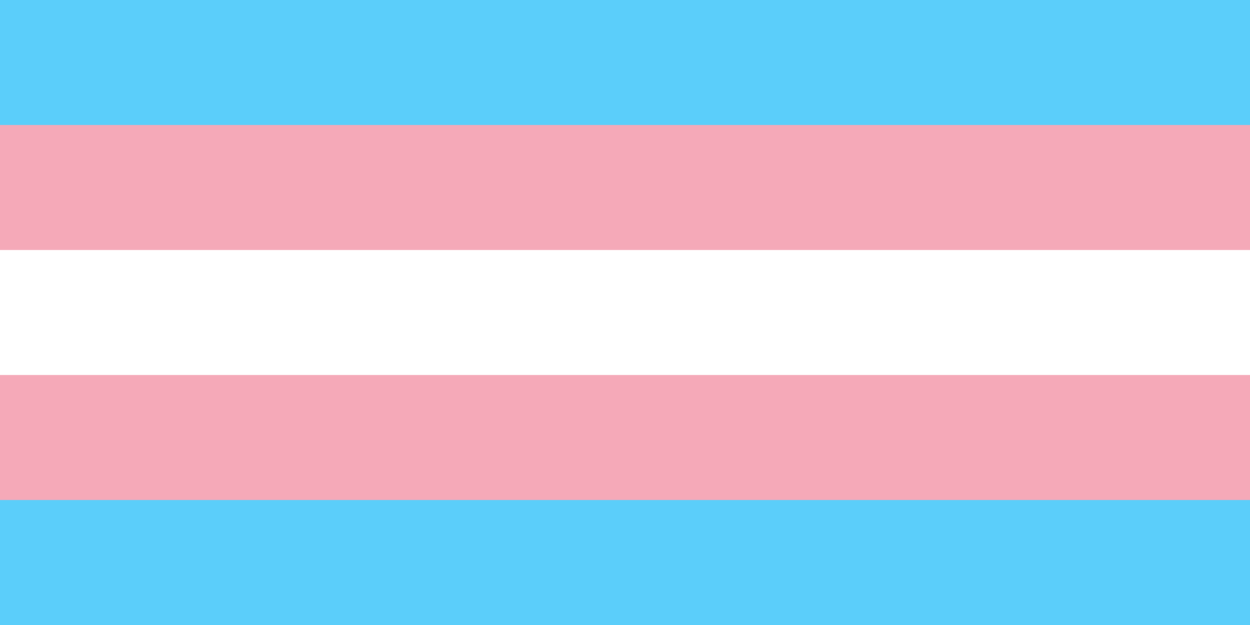The following essay is the second part of a discussion on Transphobia by Hazel Sanderson…

Fighting Transphobia Part 2
Click here to read part one.
Fighting Transphobia
Part 2: The Media
THE MEDIA AND DEBATE
The media, especially in the UK can go a long way to promoting transphobic rhetoric and ideology. The media’s false narrative as being inherently neutral can cause adverse effects socially when it comes to fringe or radical talking points. Representing small groups as having an equal weighting to much larger (and scientifically backed) groups presents both as having equal value to the public. This is insidious, and actively helps promote hate groups, helping them recruit members.
The truth is that arguments like this shouldn’t be made to look neutral, especially when one side makes almost no effort to hide their identity as a hate group. The phrasing of these arguments, especially those between trans exclusionists and trans people are even more insidious, with it commonly being painted as feminists against trans activists, as if trans people aren’t also feminists. Radical feminists who are trans exclusionary are just a subset of radical feminism, but painting them as representing the whole of feminism creates an immediate bias against the trans activists, who I remind you, are also usually feminists.
This leads credence to transphobes, and with trans activist talking points being framed as anti-feminism this plants us firmly with a public view as anti woman, despite the overwhelming number of women and cis-women involved in trans activism. As long as the topic remains obscure enough, as many trans talking points are for the average cis person, laymen won’t recognise the false equivalencies created by the debate like structure, and in this way even trusted media outlets can print contrafactual nonsense with little penalty.
Coupled with a societal narrative that pays well for outrage, or sensationalism, the trans narrative brings in a lot of outrage, and this overfocus on trans crime or acts by trans activists serves only to push the narrative that trans activism is inherently dangerous, because this sells more papers or gets more clicks
During GRA consultation as an example, a variety of articles talking about the ‘concerns’ women’s groups had about the consultation, never voicing any of these concerns and claiming that women’s voices were being silenced in the discussion, whilst having a platform for their opinion and not using it. They do this because they know their “concerns” sound bigoted or hateful, and displaying them so brazenly would make their groups look bad, their end goal to delay discussion, and to delay trans equal rights, whilst allowing them the room to say that you have misinterpreted their views.
They often pose themselves as being silenced by trans activists, despite having big media platforms, and a lot of mainstream media attention. This is without touching on the idea that they are required to be given a platform for their views.
Free speech is rarely as free as it is made out to be, and even with the view that you are protected to say whatever you wish, this would still have implications in speech that is designed to limit the speech of others, that is hate speech. Hate speech limits the speech of oppressed groups by making them more likely to face violence for their expressed opinions, or even preventing them from having the ability to speak at all.
I agree that everyone should feel entitled to believe whatever they want to believe, and have the right to say it, however no one is entitled to a platform for their beliefs or freedom from consequences or criticism if those beliefs are shared to a wider audience.
Humans are not nearly as rational as we would have ourselves believe and our cognitive and inherent biases usually dominate. We like to be right, and will actively believe arguments that seem to favour the opinions we already have, which is why stereotypes are so pervasive.. Transphobic arguments capitalise on these biases by confirming what your subconscious already wants to believe, and then once you’re in, they can continue to further radicalise you against trans people. This again plays with the ideas of cisnormativity and a binary society, you are already prepositioned to accept something which validates this belief.
Platforming transphobic ideology, especially at places like universities gives these ideas credibility, and draws more attention to speech which is designed to not only infringe on the free speech of minority groups but to dehumanise them. Is debating transphobes worth it? Debating is rarely demonstrative of who is the most truthful or right but who is the best debater, effectively who is the loudest in the room, or the best at appealing to the audience’s biases.
Debating can be a useful technique when both sides enter with goodwill and in good faith, but in an argument about trans people’s rights to exist there is no compromise we can make that isn’t giving up our right to life in society. Explaining why transphobes are wrong in debate rarely bears fruit, not because we can’t prove them wrong, but because as the situation is: they are incapable of understanding why they are wrong.
The reason debate is suggested is because they are aware of the left’s want to find a peaceful compromise, to meet in the middle. If they bait the left into having discussion on their terms, and keep insisting that they should find common ground, it makes them look like the reasonable ones, and ignores the fact that any step in their direction necessitates dehumanising of trans identities.
They will often say something short, quippy and wrong, that requires nuance to answer; you respond with a long response, and they ask another question only tangentially related, which requires another nuances response. It’s a never-ending cycle until you slip up or make a mistake, then they jump on you for it. Any refusal to answer them is seen as an admission of defeat, and not because you don’t want to answer a question you’ve answered hundreds of times to an audience who doesn’t care what you think.
Their arguments in debate are often aimed at fence sitters in the audience who have yet to come to a concrete decision or as a dog whistle to transphobes who may be watching, and rarely with the idea of actually convincing trans people that they are in the wrong . In a society where hate speech is frowned upon, and can occasionally result in backlash, with work places or socially, transphobes find it more difficult to be outright transphobic, resulting in the need to hide transphobia behind statements that at first sound reasonable or even feminist in origin.
When asked in good faith some of the questions Transphobes ask are genuinely interesting, and are questions that trans and queer scholars have spent years talking about and writing about already (not that they’d care to check). Questions like “What makes you the gender you are” or about socialisation are genuinely interesting, but when asked from a point of view that aims to devalue and erase your existence, they are used to spread hate.
This does occasionally mean that someone gets labelled as a transphobe who is not necessarily but is unknowingly parroting their rhetoric as a feminist talking point, which is exactly the point. It obscures those who are actively transphobic, and therefore it is so important for feminist spaces to become better at recognising these rhetorical strategies to ensure that your trans members are safe.
COMMON TRANSPHOBIC TALKING POINTS
I also want to talk for a bit about common transphobic ideas and the ways in which these ideas are phrased to mask their hate or otherwise make themselves sounds as non-antagonistic as possible.
A lot of transphobic rhetoric focuses on children, and usually phrases this in such a way as to pose people harming children or things being done to children. This benefits transphobes because of course people want to protect children, they may have children, or young family members, posing the argument as this puts people on the defensive immediately.
This is usually phrased as young people being “transed” by trans groups or organisations, as this ignores the input of parents and the child in this decision, and makes it seem like young children are being operated on or given medical intervention. The truth is that most children under 18 are not given any medical intervention, though it may be suggested to socially transition for their mental health.
In rare cases children can be put on hormone blockers to delay puberty onset, but this is already done for people with precocious puberty, and in this case prevents trans kids from having to suffer through the wrong puberty. If they should decide not to transition they can be taken off these blockers and puberty would commence as normal.
A lot of prominent transphobes in the UK especially are white cis women and carry a lot of privilege because of that. Privilege can be uncomfortable for activists to acknowledge because it means that they have to be willing to check theirs and sit down at times when their voice isn’t needed. If you don’t want to or are unwilling to check your privilege, the easiest way to avoid doing so is to flatten privilege with an Us vs Them narrative. You see this with transphobes especially with terms like “shared girlhood”, “females like us” and vague references to a sisterhood. These concepts are usually used in a transphobic context, but also represent very racist, ableist and anti-intersectional ideals when used in this way. White women have not been allies to women of colour historically speaking, nor have able bodied women stood by disabled women. It is simply an attempt to join you against what they view as an enemy.
This also frames a lot of the transphobic viewpoints about trans men in particular. Because they view everything in such binary terms, and because of this us vs them narrative they have against those they view as men, they view trans men as lost lesbian sisters or variations thereof. By framing it in this way, transitioning can then be positioned as a form of conversion therapy where lesbians are forcefully converted to de facto heterosexuality, ignoring the fact that a majority of trans men are not exclusively straight and a large number are gay men. It also presents an interesting narrative that is often promoted of lesbians being erased by the patriarchy, which again without context can draw in allies easily.
This massively ignores the body autonomy of transmasculine people and is therefore not a feminist position, and the belief that they are simply women who are too stupid or brainwashed to see it is naive and again unfeminist.
Many gender critical feminists also refuse to contend with the fact that 47% of trans women have been sexually assaulted, not working very well with their narrative of trans women as predatory or dangerous. Instead they often question survey methods or outright deny the data, which, is just ignoring victims of sexual assault, with the trans person often being seen as deserving or at fault for being trans, which is just victim blaming dressed up in feminist rhetoric.
Many gender critical feminists will try to argue that either all lesbians have problems with trans people, or even that all transphobes in these circles are lesbians. This is part of appropriating a minority group to act as a shield for their hate speech, allowing them to claim lesbophobia at anyone arguing against their transphobia. It is also a view which benefits them in the media, helping recruit new members if young lesbians are lead to believe they should be in these groups, and also stigmatises the lesbian identity to cis-girls who see themselves as trans inclusionary.
A lot of transphobes attempt to define womanhood, or gender/sex, in a way that excludes trans people, and trans women in particular, but as we saw earlier this isn’t as easy as it sounds. Gender and sex are both social constructs with fuzzy lines around the edges. We use identity words to communicate with others, but those words do not have innate objective meaning. There is this idea that something being a social construct makes it somewhat not real, or fake, Texas is a social construct, but people still identify as Texans. Money is a social construct, but that doesn’t help you in a capitalist society.
In this way it becomes obvious that a lot of transphobic rhetoric focusses on double speak, and hiding transphobia behind feminist sounding talking points, which when pointed out, allows them to claim that they actually meant something else, which should be considered evidence that they are shitty communicators rather than evidence that the critic has misunderstood. Transphobes in general like to work very carefully. With many hate groups, people juxtapose what they say with what they mean, but for transphobes what they say is usually what they mean, but with implication or subtle transphobic nods that it can be difficult for those not acquainted with it to recognise.
They like to work with phrases that sounds at first entirely reasonable, such that when trans people point out the transphobia inherent in them, the general public would see us as unreasonable. After all what could possibly be the harm in statements like “Lesbians are females”, “Men shouldnt be allowed in women’s spaces”, “We need single sex changing rooms” or “women are female”. Transphobes obsessively police the distinction between sex and gender, with sex being seen as exclusively referring to biological sex, and gender being ridiculed as an undefinable concept. In a world where sex and gender are often used interchangeably by the public, they use this ignorance to drum up support for their cause.
CONCLUSION
Often there is an overfocus on the idea that trans people have some radical agenda or ideology, as if asking for equal rights is simply a stepping stone to some long winded plot to take power, or turn people trans. We don’t want to turn your kids trans, we just want your trans kids to not be burdened by the same struggles that we face. We just want your trans kids to be able to live, to be able to exist in public without a constant fear for safety.
When a group is defined out of existence, there is little we can do to stand up for ourselves. If we cannot point out the disingenuous undercurrent to their “reasonable statements” there is nothing we can do to defend ourselves from them. The twisting of language is clever, but every time it is pointed out for what it is, we win a little victory. I hope that you have learnt enough from this that you can help us win some little victories in the future.
This is some of the info describing links to right wing ideology, or from right wing pages espousing talking points from gender critical circles:
https://handsacrosstheaislewomen.com/home/
https://jezebel.com/of-course-terfs-have-found-common-cause-with-white-nati-1839129243
https://jezebel.com/the-unholy-alliance-of-trans-exclusionary-radical-femin-1834120309
https://hornet.com/stories/womens-liberation-front-transphobic/





Leave a Comment